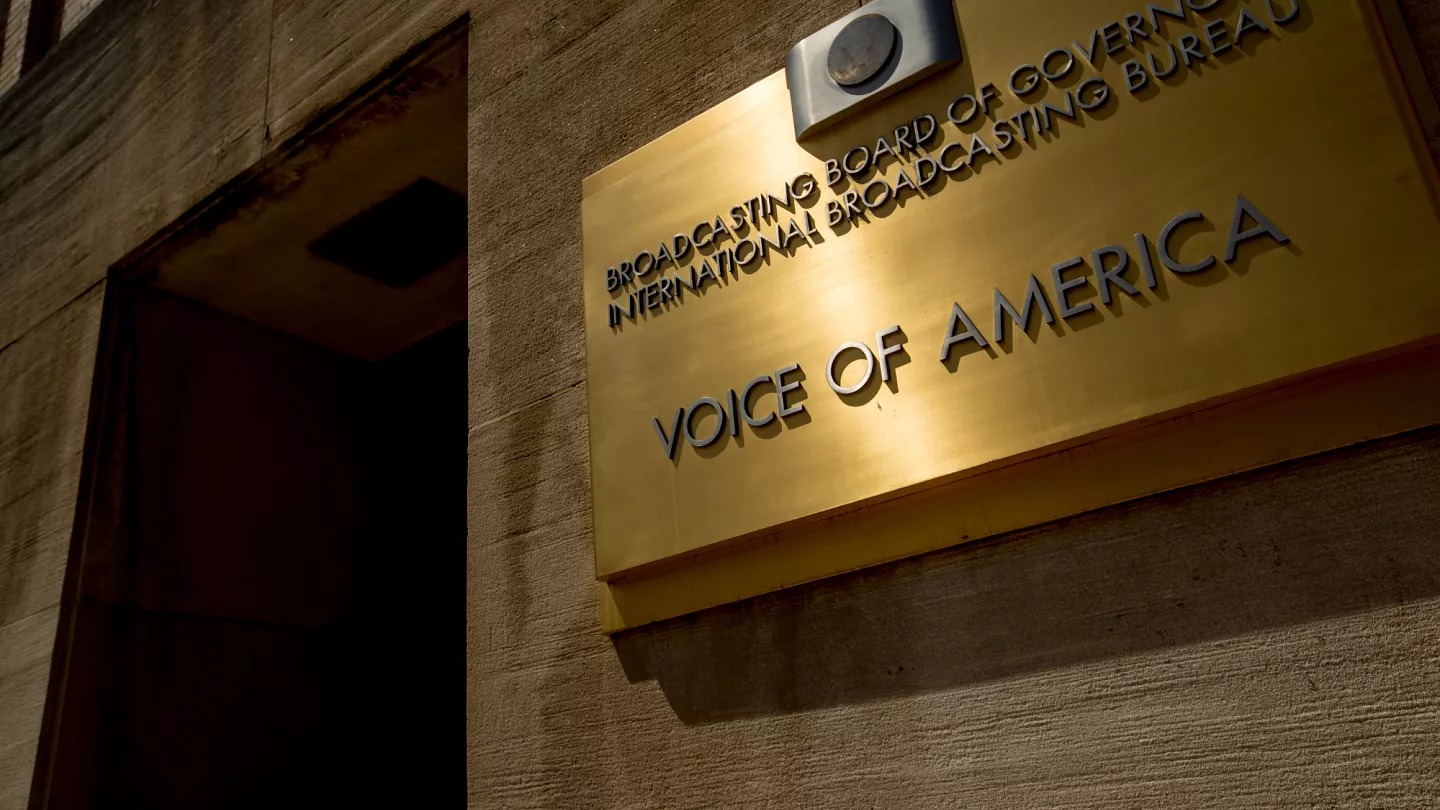
For the first time in 83 years, Voice of America (VOA) has gone silent.
Through a drastic reduction in media funding, the Trump administration has effectively shut down VOA and other U.S.-backed news outlets. On Friday, March 14, Trump signed an executive order slashing funding to the U.S. Agency for Global Media (USAGM), the umbrella organization overseeing VOA, Radio Free Europe/Radio Liberty (RFE/RL), Radio Free Asia (RFA), and Radio Martí. The decision removes vital lifelines of independent journalism for millions across the globe, especially in authoritarian states where access to credible news is scarce.
The response was immediate. Michael Abramowitz, VOA’s director, called the move unprecedented. “For the first time in 83 years, the storied Voice of America is being silenced,” he said. Nearly the entire 1,300-person staff has been put on leave.
VOA, founded in 1942 to counter Nazi propaganda during World War II, has long been a beacon of free press. In the decades since, it has provided news in dozens of languages to audiences in places like China, Russia, and North Korea—nations where state-controlled media dominate the narrative.
Trump’s decision has sparked sharp criticism from press freedom advocates. Reporters Without Borders condemned the cuts as a “departure from the U.S.’s historic role as a defender of free information” The organization urged Congress and the international community to intervene as well.
The cuts also extend to grant-funded programming, terminating financial support for Radio Free Asia and other services that have long operated as counterweights to government propaganda in oppressive regimes. “The cancellation of Radio Free Europe/Radio Liberty’s grant agreement would be a massive gift to America’s enemies,” said Stephen Capus, the network’s President and CEO.
Trump’s executive order frames the move as an effort to streamline government operations. The order directs agencies to reduce their functions “to the minimum required by law.” In effect, this translates to cutting funding for anything deemed non-essential.
Kari Lake, a former news anchor and now a senior advisor appointed by Trump at USAGM, has been vocal about her disdain for these media outlets. In a statement on the agency’s website, she called the Agency for Global Media “a giant rot and burden to the American taxpayer—a national security risk for this nation.”
That stance aligns with Trump’s long-standing skepticism of U.S.-funded international media. During his previous time in office, he clashed with VOA, accusing it of promoting narratives that undermined his administration.
VOA and its sister networks reach an estimated 427 million people worldwide. Their reporting offers uncensored news to audiences in some of the world’s most restricted media environments. In countries where governments tightly control the press, U.S.-funded outlets have provided an alternative voice.
Now, that voice is gone.
For dissidents in China, citizens in Iran, or activists in Russia, the loss of these networks creates an information vacuum. Without VOA and its affiliates, independent reporting on U.S. policy and global affairs becomes harder to access.
The move also raises concerns about America’s soft power. The U.S. has historically used media to extend its influence abroad, challenging authoritarian narratives and reinforcing democratic values. Shutting down these outlets weakens that influence—at a time when Russia and China are aggressively expanding their own state-run media operations.
The future of U.S.-funded international journalism now rests in uncertain territory. While the executive order immediately halts funding, Congress could intervene. Lawmakers from both parties have supported these networks in the past, recognizing their role in countering propaganda from adversarial states.
There is also the question of whether private funding or non-governmental organizations could step in to keep some of these operations afloat. But for now, VOA, RFE/RL, RFA, and others are effectively shut down.
Whether this is a temporary setback or a permanent shift in U.S. media policy remains to be seen. What’s clear, though, is that the world just lost a major source of independent journalism—and America just lost a powerful tool of global influence.
Get latest updates by clicking here.
Share this article: